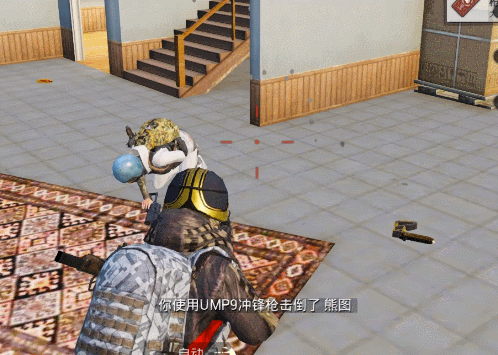In order to allow more people to experience the charm of video games, most games now have built-in filters for violent content, which means that if you don’t want to see rivers of blood, you can deactivate them all in the visual settings. Of course, if you feel that these visual effects do not affect your game experience, or even add a little bit of “realism” that you desire, you can choose to keep them.

But in China, at least at this point, we don’t have a choice. All video games that are legally allowed to be sold or operated in the country cannot have any violent content like blood or chopped off human limbs. The green blood in the phenomenal shooting game PUBG is still being mocked by Chinese netizens today – a compromise made by the game’s publisher to Beijing for smoothly entering the Chinese market.

And when the mobile version of PUBG entered China, the game’s Chinese operator Tencent did something even more unbelievable: they completely rebranded the game. The game was renamed Game For Peace, and the setting was changed from a group of desperate people striving to survive on a deserted island to a peaceful military exercise. And, the most interesting thing was that not only were the blood effects completely removed, but players would no longer fall to their death and become a corpse after a kill, but would instead crouch down and wave away with a big smile.

The green blood and rebranding of the game caused a huge controversy, even among the player community, which is notorious for its fervent nationalism and patriotism, many of whom criticized the censorship and the operators in very mean words. Tencent has repeatedly explained on various occasions that this is all for the sake of the physical and mental health of minors, and they have even cited the game’s “content optimization” as an example of “cleaning up the cyberspace”.
It is essential that minors grow up in a safe enough environment, but the Chinese government’s efforts in this matter seem rather unintelligent: they have abandoned many approaches that are more scientific. They could have worked with experts in various industries to create a strict content rating system thus providing producers with production standards that also effectively prevents children from accessing content that is inappropriate for their age group. Or they could produce their own, or import enough audiovisual entertainment products for children and teens in bulk to give them more quality choices. But sadly, Beijing has not made any exciting attempts to do so, and all the government has done is to look like the arbitrary punishment of an innocent child by a parent of a traditional society that knows nothing about education but is too arrogant to allow any questioning.

In the absence of the rule of law, the abuse of power is usually more arbitrary and widespread in authoritarian states, but I believe we can trace the roots of the behavior patterns of Chinese censorship to our political tradition. A book that inspired me a lot is called From the Soil, which mentions that the relationship between the government and the people in China since the Qin Dynasty is in fact an extension of the patriarchal system in the traditional family. In the patriarchal power structure, the most important thing is the power of indoctrination. This is because experience is the answer to most problems in highly stable agrarian societies, and people in high positions usually have more experience, and they are therefore given unchallengeable power to indoctrinate others arbitrarily and capriciously. If you’ve ever lived in China, you understand how difficult it can be to deal with policies and regulations which are constantly changing and completely unpredictable.
One thing I think the censors need to understand is that no matter how omnipotent and invincible they are in cyberspace, human’s blood can only be red in real life. Children’s perceptions are very simple and straightforward, they will agree with whatever they see, and exposing them to lies will harm them most.
Reference:
[1] Hamilton, Zheng, Hamilton, Gary G, & Zheng, Wang. (1992). From the soil : the foundations of Chinese society. Berkeley [etc.]: University of California Press.
[2] The official website of the game Game For Peace (in Chinese)
[3] Singapre censorship classificaion


I didn’t know about this type of censorship in China. Including the options for enabling or disabling this setting would be better. I share your opinion about showing the truth instead of exposing children to lies.
I do understand – to a point – why you wouldn’t want to expose children to violence and gorey scenes from a young age, I’m sure I – like many of my peers – got a bit too desensitized to certain topics because I had quite free access to the internet.
That said, however, I think that the weird dichotomy of still playing a shooting war game (despite it being for peace, lol) and having the people you kill in it smile and wave at you feels very odd. Not to play psychologist, which I’m definitely not, but I do think there might be some repercussions with children subconsciously not grasping the actual consequences of shooting someone because all they see is green goo and people smiling and disappearing.
I loved your deep dive into the roots of this type of censorship, it was very insightful! I’ll make sure to read From the Soil sometime during the break, since I’d love to hear more about this topic.
I agree with your point that teaching children a false perception will harm them the most in the end. Milla’s comment is certainly dead-on, and it’s something scary to think about. There seems to be a balance that should be possible to achieve here that is the least harmful, but I wouldn’t know what that could be.
Thank you for your insights on this topic!